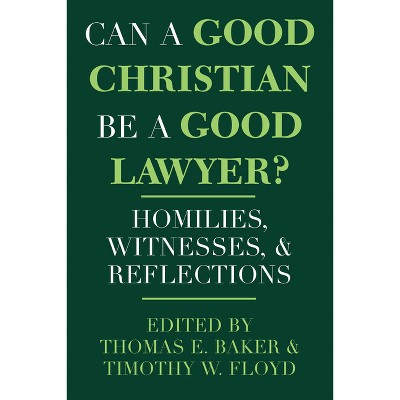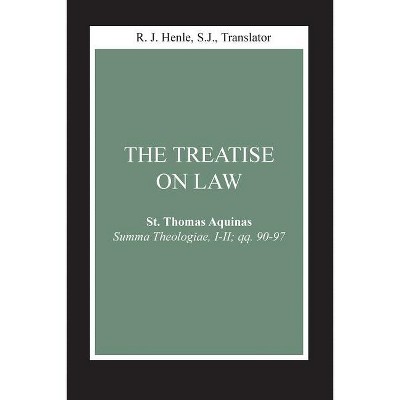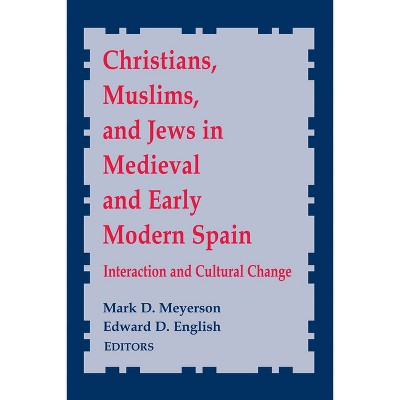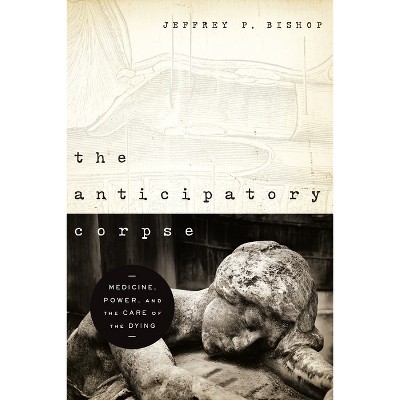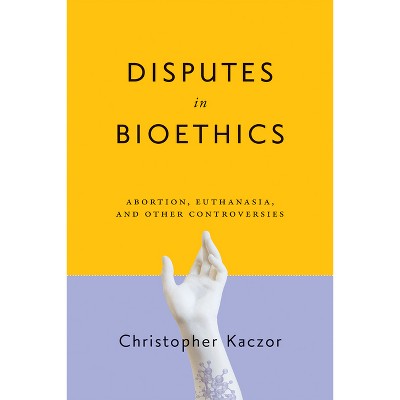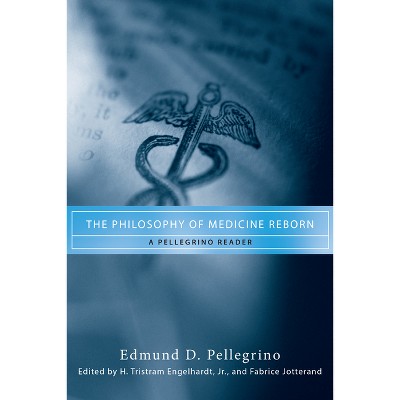Sponsored

Boundaries Dimly Perceived - (Notre Dame Studies in Law and Contemporary Issues) by Christopher F Mooney (Hardcover)
In Stock
Sponsored
About this item
Highlights
- How do you construct and maintain a secular federal government in an essentially religious society?
- About the Author: Reverend Christopher F. Mooney was a professor of religious studies at Fairfield University in Connecticut and a winner of two national Catholic book awards.
- 206 Pages
- Freedom + Security / Law Enforcement, Civil Procedure
- Series Name: Notre Dame Studies in Law and Contemporary Issues
Description
Book Synopsis
How do you construct and maintain a secular federal government in an essentially religious society? This question has been debated from our founding fathers to our court justices of today. This issue is discussed here as it relates to the law, religion, education and the common good.
Review Quotes
"Christopher F. Mooney, S.J., is a believer in the educationa and legal processes of secular American society gently leavened by religious perspectives. As a legal scholar, social philosopher, professor of religion and sometimes educational administrator, he has lived with these processes over the years. Boundaries Dimly Perceived is a study and a defense of some of them agains the rising fear of a 'secular humanist conspiracy' that has fueled sectarian reactions not only among Protestants but also in the Vatican." -America
"In Boundaries Dimly Perceived: Law, Religion, Education, and the Common Good, Christopher Mooney steers away from the notion of a common Judeo-Christian tradition to focus on the contemporary reality of pluralism. Mooney does not view pluralism as a negative to be overcome; indeed, he believes that our society cannot afford the price of such coercion." -Religious Studies Review
"Lawyers, theologians, and educators will benefit from this collection of essays by an experienced and multi-faceted observer of religion and law in America. The book is a calm, clear, and compelling analysis of those tormenting topics that are generaly bundled together as issues involved in the relationship betewen church and state." -Journal of Law and Religion
"Mooney is concerned with the common meanings and value commitments by which American society thrives, without which it dissolves into squabbling, defensive fragments. He traces structural and culture changes within and between American society, government, the churches, the educational establishement, ending with suggestions on how their mutual interaction might be directed toward the common good." -Theological Studies
"Mooney makes it unmistakably clear that religion in the United States cannot be understood apart from the complex texture of intersections and interactions between religion and law. He ivites religious studies to come out of its disciplinary shell and examine that texture, and he provides an excellent guide to it." -The Journal of Religion
"Mooney pays great respect, sometimes mingled with wariness, about the power of religion and law in America, especially about how they interact." -Christian Century
"Mooney's theses are sound and valid. To miss this book is to miss an innovative approach to law, religion, education, and the common good." -Journal of Church and State
"Sandwiched between two slices of postliberal platitude on religion and culture and on education and citizenship, is a historically informed and thoughtful essay on constitutional interpretation and the religious establishment clause." -Choice
"This book...seeks to orchestrate three themes--common good, pluralism, and cultural change--by looking at three institutions in American society whose boundaries instersect at many points and frequently overlap." -Theology Digest
"Boundaries Dimly Perceived ...is a thoughtful and stimulating book. It makes an important contribution to our understanding of the complex relationships among religion, education, and society." --James O. Freedman, President of Dartmouth College
About the Author
Reverend Christopher F. Mooney was a professor of religious studies at Fairfield University in Connecticut and a winner of two national Catholic book awards.






